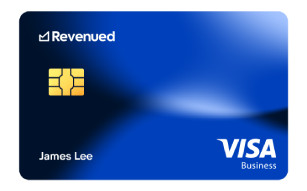Why Would a Business Need Payroll Financing?
Why Would a Business Need Payroll Financing?
Every business experiences lean times when more cash seems to be flowing out than in. That’s when you are required to make hard choices about the bills to pay now and what can wait. Payroll is an operating cost you can’t delay.
After all, your employees are the lifeblood of your operations, so getting them paid on time is paramount to your company’s growth and success.
Most payroll financing (also called payroll funding or invoice factoring) is done through invoice factoring financing, though there are other methods to fund payroll, as we will discuss below. Keep reading to better understand why a business would need payroll financing and discover funding options best suited for your firm’s needs.
More About Payroll Financing
Using payroll financing to fund your payroll is relatively straightforward. Using the invoice factoring method, you arrange to sell your accounts receivable to an invoice factoring company, which typically purchases them in two installments. Depending on your industry, the first payment, known as the advance, includes about 80%-90% of your invoice’s value.
The money is customarily deposited into your company’s bank account within a business day. Your company is paid the second installment when your customer pays the invoice in full. When this happens, the payroll financing company takes its cut and rebates the remaining funds.
Reasons a Business Would Need Payroll Financing
As we said, when it comes to operational expenditures, making payroll should be your top priority. Many unfortunate circumstances might lead you to seek out immediate payroll financing options:
⦁ One of the most common reasons a business might need payroll financing occurs when clients take too long to pay their invoice, and your accounts receivables take a hit.
⦁ An unexpected event occurs, forcing you to spend large sums of money.
⦁ Large, influential buyers lock you into long payment terms.
⦁ You need to smooth out cash flow or grow revenue.
⦁ Your business is receiving new orders, and you need to grow your staff.
Other Forms of Payroll Financing
Besides invoice factoring, companies who run short on revenue turn to other methods of payroll financing:
⦁ Short-term loans—Short-term loans can provide fast cash; however, they must be paid back relatively quickly. Additionally, you are charged immediately for the lump sum of money you receive. Plus, these loans come with higher interest rates and possible origination fees. You may also be hit with a prepayment penalty for trying to pay it back early.
⦁ Line of credit—A line of credit is similar to a credit card. Business owners are given access to funding up to a fixed cash limit. A credit history review and decent credit are usually required for a line of credit.
⦁ Merchant cash advance—A merchant cash advance (MCAs) is an alternative financing source that provides your business cash in return for a percentage of future credit or debit card receipts. To qualify, your company must meet a credit card transaction minimum each month. Like a loan, MCAs provide you with a lump sum that you must pay for even if you don’t use it.
Revenued Is the Best Choice for Payroll Financing
No matter how stable your business feels right now, at some point, you will likely face some of these challenges. Adverse or inconvenient circumstances seem to hit us when our company is most vulnerable. However, are the payroll financing choices mentioned above the best options for your growing company?
Invoice Factoring
Payroll financing through invoice factoring is restricted to invoice-based businesses with credit-worthy clients. Once your invoices are sold to the factoring company, they become collateral, and the factoring company is tasked with collecting the debt. This method of payroll financing can lead to strained client relationships.
Short Term Loans
Some short-term loans are secured, meaning the lender requires collateral to protect their exposure against default. An equipment loan is an example of financing where lenders require you to put up newly purchased equipment to secure the debt. Using this type of funding to cover payroll can be risky and may not be feasible if you have poor credit.
Line of Credit
To qualify for a line of credit to fund your payroll, many lenders require a minimum of a 650 personal credit score. Revenue requirements are considerably higher as well, demanding $400,000 per year in some cases.
At Revenued, we understand the challenges of running a small business. High credit scores and consistently strong revenue are not possible in many cases. This puts lines of credit out of reach for many business owners.
Merchant Cash Advances
When you use an MCA to finance payroll, a fixed lump sum is deposited into your bank account. Your factor rate, the multiplier that dictates the advance’s cost, is added to the entire financing amount, whether or not the money is used. The MCA provider receives a portion of your company’s future revenue until you reach the agreed-upon payback amount.
RELATED ARTICLES
Revenued Business Flex Line vs Ecommerce Revenue Based Financing
Learn MoreRevenued Flex Line Pricing vs. (MCA): A Comparative Analysis
Learn MoreWhat is My Business’ Credit Utilization Ratio?
Learn MoreWhy is Cash Flow Important to Your Business?
Learn More
Boost your spending power with the Revenued Business Card
Only pay for what you use at gas stations, hotels, supply stores, supermarkets and more.
Take control with the Flex Line
Check your available balance online and request a cash draw with the tap of your finger, anytime.

